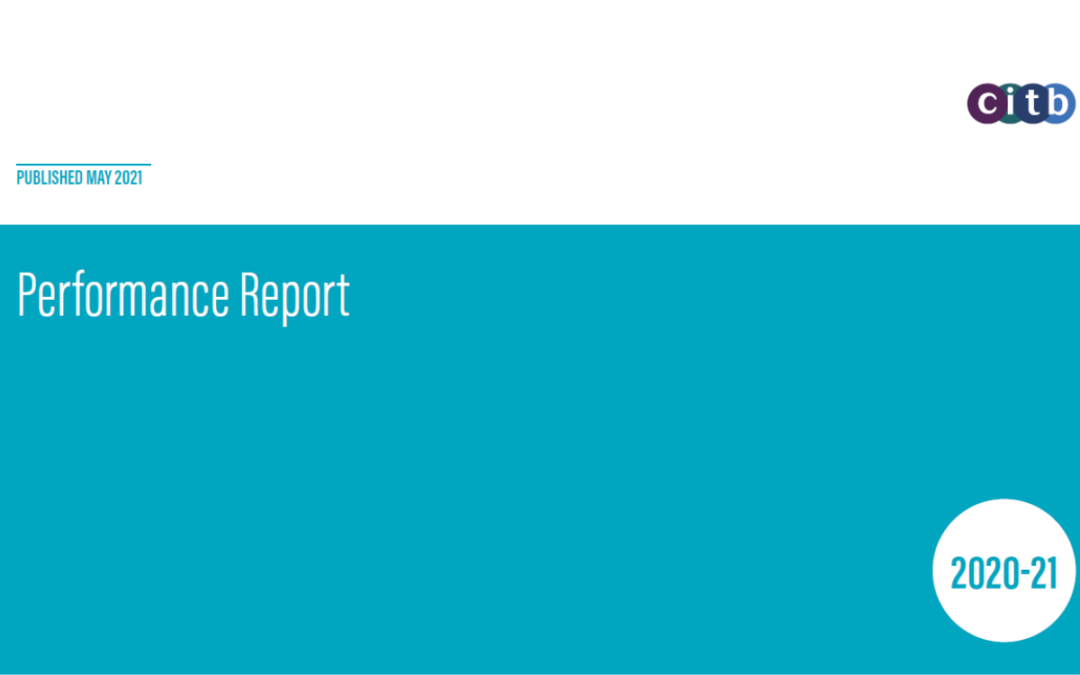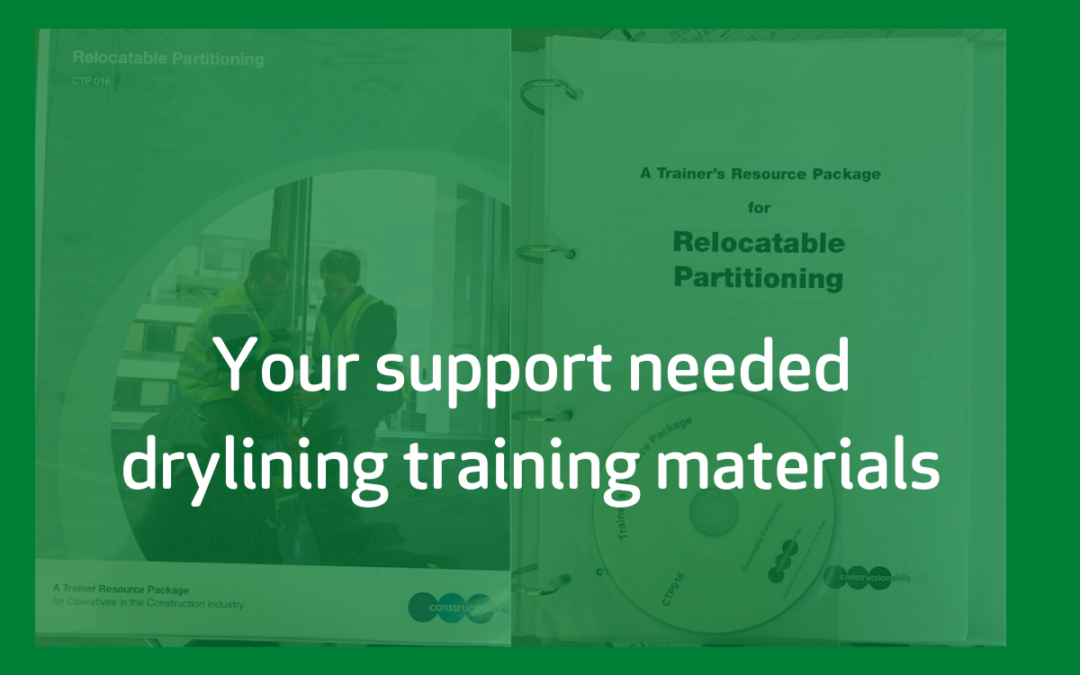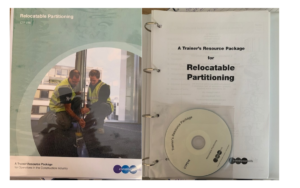
by Clair Mooney | May 20, 2021 | Skills
Following the latest easing of restrictions on 17 May, face‐to‐face teaching can resume at all schools, colleges and other further education settings. However, there has been no further guidance on resuming face‐to‐face training in the workplace, and companies should continue to determine if any training required can be undertaken remotely or is essential at this time, as they may be required to explain how they are complying with the current restrictions, which include working from home where possible.

by Clair Mooney | May 14, 2021 | Main News Feed, Sustainability, Transformation
FIS has this week launched a new Sustainability Toolkit to help the sector to take a pro-active lead as a supply chain in supporting the UK ambition and meeting legal requirements linked to UK Net Zero carbon commitments, but also to look more broadly at the ethical and environmental aspects of sustainability.
In June 2019, the UK became the first major economy in the world to pass laws to end its contribution to global warming by 2050. With the The (Conference of the Parties) COP26 Summit taking place in the UK in November 2021, this year has been designated “The UK’s year or Climate Action”. With Construction accounting for 40% of UK Carbon Consumption, the construction industry is critical to supporting this commitment. In turn the Finishes and Interiors Sector representing around 11% of UK Construction and decisions and processes associated with the fit-out and finishing of buildings is estimated to account for 40% of energy in a building and hence has a big part to play in realising change. A recent manifesto published by Perkins & Will sets down a clear strategy to moving to zero carbon and identifies that the built environment is responsible for 40% of the UK’s total carbon footprint and within this fit-out is responsible for 40% of energy in a building. A key figure to target improvement identified in this report is that 300 tonnes of fit-out material goes to landfill every day.
The Sustainability Toolkit is the first output of a new Sustainability Working Group (which is being developed in partnership with the Supply Chain Sustainability School) has been established within the FIS community to help inform activity and provide a platform to encourage collaboration through the FIS and with wider industry initiatives. The plan is to use this group of experts to set down a clear action plan for the sector and highlight key strategic relationships that can be developed through the FIS to support transformation. Initially focus is in 5 core areas:
- Increasing knowledge and understanding within the supply chain
- Setting targets and standardisation (including monitoring and measuring impact)
- Providing an active network and encouraging collaboration
- Highlighting individuals and approaches that help inspire and inform change
- Informing design and encouraging better asset management
FIS Chief Executive Iain McIlwee stated:
“Whilst many have not been hit by the full force of the Net Zero tidal wave that seems to be heading our way, it is absolutely dominating discussions around the transformation of construction. When you step back and look at the principles of sustainability, they sit very closely to everything FIS stands for. Beyond the obvious environmental considerations, the ingredients of change are value led change, resource efficiency, innovation and harnessing technology, productivity, quality, collaboration and ultimately early engagement and dialogue up and down the supply chain. We are really grateful to the members who have got stuck in to date and look forward to exploring the full potential of the race to Net Zero and a focus on fairness and inclusivity that will be a key to transforming our supply chain for the better”.
The FIS Sustainability Toolkit is available here
If you are interested in joining the working group or simply seeing the draft action plan email info@thefis.org or call FIS on 0121 707 0077
Next meeting of the FIS Sustainability Working Group is set for 3pm on the 27th May – the meeting will be virtual. If interested in attending, email info@thefis.org

by Clair Mooney | May 14, 2021 | Membership
At the FIS Board Meeting on 27 April, industry challenges related to shortages, transformation, evolution of FIS as a community and leadership were discussed. One key outcome was that Helen Tapper of Tapper Interiors and current serving President, was invited, and has agreed to extend her term of presidency for another year. As part of the process, Lydia Sharples, Encon Group has been nominated and has agreed to take on the role of Vice President.
Former Vice President Richard Jones remains committed to supporting the Board and will stand for re-election at the 2021 Board elections, but has opted to step aside to focus his energy on being an ordinary board member and managing growth within his own business Paramount Office Interiors.
FIS is a not-for-profit organisation that exists to support members, improve safety, minimise risk, enhance productivity and drive innovation in the sector. It is governed by an elected Board of Directors which sets policy and direction and provides oversight and scrutiny to the operation of the organisation. The FIS President and Vice President assume the duties of Chairman and Vice Chairman of the Board as well as representing the organisation when called upon. All Directors are nominated from the membership and serve as volunteers – they are supported by the FIS Executive Team.
Commenting on the announcement, Helen Tapper stated:
“COVID-19 has dominated our world in the past 18 months, but as the worst of the impact starts to recede, we need to ensure that we don’t let the lessons learned fade into the background and we continue to drive the transformation agenda.
“Just before the enormity of COVID gripped us, I focussed on the three steps to Rebuilding Construction, I will dedicate my remaining time as President to taking this work forward and ensuring that the finishes and interiors supply chain is exemplar and leading change when we look at fairness, quality, inclusivity and collaboration and that FIS Membership through our vetting process and ongoing work upholds these values and ensures members benefit from the value led change that is being talked about by Government and the Construction Leadership Council. I would also like to take this opportunity again to thank the FIS Board for the support they have given to me as President and the dedication of the FIS team for the daily help they give to my business. I am very proud of our community and it is a real honour to serve it”.
Lydia Sharples has served on the FIS Board since November 2019. She has over 20 years’ experience working within the building industry including brand leaders of drywall and insulation manufacturing and UK market leading distribution, much of which has been in marketing and communications. Having worked with various trade bodies over the years, Lydia fully understands the importance they can play in future development. Lydia commented:
“It is a real honour to step up to support Helen as Vice President of FIS and to get this vote of confidence from the Board. The last year has been exceptional and I have been very proud, not just to support FIS efforts through the Board, but to be a part of a community that has been so steadfastly committed to its values. The FIS team have given all their energy to help members adapt and confront some of the most exacting times we will (hopefully) ever encounter. Helen has been an inspirational and supportive leader over this period and for me it is great news, at the request of myself and our fellow Board members, that she has agreed to stand for election as President for another year. Enabling her to have the time and the opportunity to deliver the clear vision of change she has and we as a Board share – exciting times ahead for our community.”
All members are invited to consider nominating themselves to join the Board. By joining, you have the chance to use your knowledge and experience in the finishes and interiors sector to influence the direction of the Association and support our mission to improve safety and quality, minimise risk, enhance productivity and drive innovation in the sector, ultimately ensuring that membership and guidance are reflected in all relevant specifications.
Reaching out to the wider membership Helen Tapper called on individuals from member companies to get involved:
“The Board is key to ensuring FIS delivers for our community and ensuring our activity is aligned to your needs. I am particularly keen to use my last 12 months as President to encourage new applicants for the board from all sections of the membership, however big or small their companies. We need the next generation to be coming through and I can promise you that the Board is an open, progressive and inclusive group – fresh views, challenging the status quo and your unique insight will be welcome and valued. We know many are reticent to come forward as they are caught up in the ‘day to day’ particularly in the smaller businesses. Like any commitment, joining the FIS Board it is not without challenge, but it is rewarding, allows your voice to be heard and, with modern methods of communication, it has never been easier to engage and support the leadership of our association.”
If you are interested in considering standing in the 2021 elections, contact iainmcilwee@thefis.org for more information.
Find more about the FIS Board and Strategy here.

by Clair Mooney | May 13, 2021 | Main News Feed, Technical, Transformation
This information is for general background knowledge concerning government’s proposals with Building a Safer Future. Subject to parliamentary scrutiny government proposes to bring the changes into effect from 1 August 2021.
Responding to the announcement FIS Technical Director Joe Cilia stated: “FIS has supported the development of the Building Safety Bill and the Building a Safer Future work that preceded it –we are fully behind these changes, supportive of the approach and encouraged that finally things are progressing to implementation. As with any change there will be some wrinkles, but it is vital that, as a sector we use this regulatory change to drive the ongoing cultural reform that we know construction needs. If members have any comments or questions that they want us to consider and feed in or around how these changes are likely to impact their work, don’t hesitate to get in touch”.
Building safety: Planning Gateway One
Following its consultation in June 2019 on proposals for reform of the building safety regulatory system, the government’s response published in April 2020 set out their plans for change. This involved the introduction of three gateway points which relevant developments / buildings must go through. Currently, relevant buildings are those which are 18m or higher or 7 or more storeys, whichever is reached first, and contain two or more dwellings or educational accommodation.
This has to demonstrate that the planning application incorporates thinking on fire safety.
- Gateway two (Technical design & construction phase)
A building control application will be required, so this gateway provides a hard stop where construction cannot begin until the Building safety Regulator has approved the building control application.
- Gateway three (Current building control completion / final certificate stage)
Provides a hard stop at which the Building Safety Regulator undertakes final inspections and issues a completion certificate. Prescribed documents and information on the as-built building will be required. Information must be handed over to the person9s) responsible for the building in use.
More information on Gateway one
This has two elements:
- Requires the developer to submit a fire statement setting out fire safety considerations specific to the development with a relevant application for planning permission for development which involves one or more relevant buildings, and
- To establish the Health & Safety Executive as a statutory consultee for relevant planning applications.
These requirements will be introduced via secondary legislation.
The fire statement must be submitted on a form published by the Secretary of State – see attachment for a draft fire statement form. (Click here view draft fire statement guidance). The questions to be answered will include information on:
- The principles, concepts and approach relating to fire safety that have been applied to each building in the development
- Site layout
- Emergency vehicle access and water supply for firefighting purposes
- What, if any, consultation has been undertaken on issues relating to the safety of the development and what account has been taken of this
- How any policies relating to fire safety in relevant local development documents have been taken into account.
Fire statements will be required to include information on the entire development site as set out on the plan which identifies the land to which the application relates.
How are the fire statements different from the requirements of building regulations or the Fire Safety Order?
The fire safety matters contained in a fire statement are relevant only to the extent they are relevant to land use planning. The level of detail and focus of information should not contain the breadth and depth of information on fire safety which will be submitted at building control application stage. Requirements of the fire statement at planning stage will not duplicate or require compliance with the building regulations or the Fire safety Order and local planning authorities will not be responsible for any building regulation matters or the enforcement of building control requirements.
Change of use applications
Applications for permission for a material change of use of land or buildings will require a fire statement unless the application is for:
- A material change in use of a relevant building and the material change of use would result in the building no longer being a relevant building
- A material change in use of land or buildings within the curtilage of a relevant building.
Consultation between local planning authorities and HSE
A local planning authority is required to consult HSE before granting planning permission for:
- Developments which will involve or is likely to involve the provision of a relevant building
- Development of an existing relevant building except where the development consists of a material change in use of a relevant building which would result in a building no longer being a relevant building
- Development within the curtilage of a relevant building in the case of development consisting of a material change in use of land or building within the curtilage of the building.
A local planning authority must consult HSE on fire safety before granting permission to develop land without compliance with conditions if the authority considers it appropriate to do so.
For more information on Planning gateway one please click here.

by Clair Mooney | May 13, 2021 | Building Safety Act
The CROSS scheme (Collaborative Reporting for Safer Structures) has extended its remit to include reporting on fire safety, in line with the Hackitt Review Recommendation 1.4 CROSS provides a secure system for confidentially sharing information and publishes free resources to help make structures safer.

by Clair Mooney | May 13, 2021 | Main News Feed
This week marks Mental Health Awareness Week. Research by CITB has shown that almost all construction workers have experienced stress in the last year, and more than a quarter have experienced suicidal thoughts. FIS reported on the growing concerns for mental health on 29 January 2021 emphasising the training and support available for FIS members.
The focus for this week to improve and support good mental health is being close to nature, it won’t cure all problems, but it can help put things in perspective, take the pressure off and bring calm to daily lives. Even just looking at wildlife, trees and plants from a window can help, although a walk exposes our senses to more of the nature around us.
CITB has published a story from Andy Stevens, a self-employed builder who hit rock bottom but who has since recovered “This has to stop. Too many people are struggling, I hope my story can help.” You may find some parts of his powerful story familiar from your own experiences or those of colleagues.
Please take the time to find out about free help for you and those you work with, detailed below.
While the largest employers might offer support to workers, smaller companies and sole traders may not know how to access free assistance that’s available. CITB is funding an initiative to help resolve this by providing accessible and consistent mental health support for everyone working in construction, including a standardised approach across the industry. They also fund The Lighthouse Club charity to provide support, which has trained nearly 5,000 mental health first aiders in the construction sector who have helped around 6,300 people so far.
The Lighthouse Club delivers charitable, financial and emotional support to the construction industry. If you would like to apply for financial or wellbeing support you can either call their 24/7 confidential Construction Industry Helpline on 0345 605 1956 in the UK, and 1800 939 122 in Ireland, download the helpline app (External link – Opens in a new tab or window), or submit your application online here (External link – Opens in a new tab or window).
If you feel your organisation needs to train and qualify someone with skills to support you employees FIS will be happy to assist, give us a call on 0121 707 0077 or email info@thefis.org.

by Clair Mooney | May 13, 2021 | Skills
Are you an employer who could provide a T Level industry placement relating to design, surveying and planning for construction, or digital production, design and development?
In September 2020, the Department for Education launched the first three T Level qualifications, designed to equip young people with the technical skills on which to build their future careers. To achieve a T Level pass every student has to complete a substantial Industry Placement with a local employer as part of their course. The Covid-19 pandemic has placed additional pressure on colleges and other training providers in sourcing enough Industry Placements for their students.
You will find some background about T Levels below, along with links to further information, to help you decide if your organisation can get involved by offering students a good quality Industry Placement. As well as providing a young person with their first step into the world of work, it could be your first step to engaging with fresh new talent.
T-Levels are new courses which follow GCSEs and are equivalent to 3 A levels. These 2-year courses, which launched September 2020, are for 16 to 19 year olds and have been developed in collaboration with employers and businesses so that the content meets the needs of industry and prepares students for work, further training or study. T-Levels offer students a mixture of classroom learning and ‘on-the-job’ experience during an industry placement of at least 45 days. Most of the learning will take place in the classroom which makes them different from an Apprenticeship. The placement can take place as a block, day release or a mix of these. There are currently two Construction T-Levels:
Design, surveying and planning for construction (available now) the course offers a core knowledge of how the construction industry works, the principles of design and the role of technology and sustainability. Students then have the chance to specialise in either Building services design, Civil engineering, Hazardous materials analysis or surveying. Eight colleges are currently delivering this programme across England and they are seeking industrial placements for 67 students. If you are an employer interested in taking on an industrial placement please complete the form at https://www.tlevels.gov.uk/employers/next-steps or call 08000 150 600 (choose option 4).
Onsite construction (starting September 2021) learners will have the option to cover at least one trade from a choice of bricklaying, carpentry and joinery, painting and decorating or plastering. FIS are seeking support to develop an occupational specialism in interior systems installation.
There are a number of progression options open to students. These include skilled employment, an apprenticeship and higher education. UCAS points are attached to the overall T-Level achievement grade.

by Clair Mooney | May 13, 2021 | Technical
Coming back to work after time away during the pandemic may have its challenges. If workers have been away from the business for prolonged periods they may have experienced a decline in ability or proficiency. They may need additional time and support to get back to pre-pandemic performance.
Businesses also need to be aware of regulatory changes, and a recent change to UK conformity marking has promoted FIS and Guild of Architectural Ironmongers (GAI) to update its joint guide “How Business Owners Can Use Partitioning and Ironmongery to Help Manage Social Distancing”,.
Developed to help those involved in managing workplaces understand key considerations they need to make when adapting their spaces, it provides guidance on using partitioning and ironmongery to manage social distancing in the workplace.
Originally published in November last year, it has been updated to cover the changes to UK conformity marking post-Brexit. UKCA and UKNI marking have been introduced as CE marking will cease to be used in Great Britain from 1 January 2022.
It also includes a list of the relevant EN Harmonised and UK Designated standards that are relevant to partitioning, doors and architectural ironmongery and a summary of product marking sales territories to show where UKCA, UKNI and CE marking can be used going forward.
Joe Cilia, technical director of FIS, said: ‘Dividing spaces, even on a temporary basis may have implications on escape routes and safety depending on how they are installed and as good ventilation has been shown to help reduce the incidence of Covid 19 infection, the advice in this free guide is important and relevant.
Douglas Masterson, technical manager of the GAI, said: “It is critical that business owners and those responsible for property maintenance are aware of the changes and how this impacts the architectural ironmongery they choose for their workplaces. Businesses will need to continue to be responsive to Government advice but the new information in the guide will help them to identify opportunities for business owners to make sensible product choices now, that will offer them compliant solutions longer term.”
The guide can be downloaded here.
Returning to work during the pandemic
The HSE has also created guidance on returning to work, which aims to help support businesses in engaging with their workforce and provide the right support. It includes:
• Who should go to work?
• Returning to work after a lockdown or other closure
• How to help workers who are worried about returning to work
• Questions to help talk about working at home or returning to work
More information on keeping your workplace safe as coronavirus restrictions are eased is available on the HSE website.
For more Health amd Safety information visit the FIS Health and Safey Hub www.thefis.org/knowledge-hub/healthandsafety/

by Clair Mooney | May 12, 2021 | Main News Feed
The Queen’s Speech marks the start of the Parliamentary year, it is delivered by the Queen, but written by Ministers and identifies priorities in terms of laws that it wants to pass through the house and vote on this year. This year the Government has identified 31 bills that MPs and peers will be asked to scrutinise and vote on over the next year. Inclusion in the Speech doesn’t necessarily mean it will automatically become law, but the Government has a strong majority and through the Parliamentary process these bills will be scrutinised and adapted.
The themes in the speech reaffirm commitments to build back better, cleaner and greener with Net Zero Strategy central, seizing opportunity from exiting the EU, driving investment and levelling up with a view to strengthening the Union.
Below we look at the areas that will have the most significant impact on businesses in the construction industry and the finishes and interiors sector.
Planning bill
This has been billed as the biggest shake-up of the planning system in decades. Whilst we have heard this statement by successive Governments, the bill does mark a fairly fundamental change as under proposals local planning authorities would no longer have the powers to turn down housing developments if they meet set standards. The Bill also forces local authorities to set new zones for housing. This Bill is already getting opposition from within the Conservative Party, so is by no means a done deal yet.
Skills and Post-16 Education Bill
The Government is planning landmark reforms for the delivery of skills and training with a focus on ensuring that people can train and retrain at any stage in their lives. Central to the Bill is introducing a right to government-funded training for all adults lacking A-levels or a qualificaion of equivalent value. The Bill will also extend the student loan system to those who want to study at local further education colleges. All adults will be entitled to four years’ worth of loans for training or education that can be taken at any point in their life.
Building Safety Bill
Government continues to press ahead with reshaping the regulation and enforcement that impacts building safety, this includes changes to the Building Regulations, new regulators and particular scrutiny on the safety of high-rise buildings and inspections of buildings under construction in the wake of the 2017 Grenfell Tower disaster.
Environment Bill
Provides a regulatory framework to impose, adapt and absorb elements previously covered under EU directives. The Bill allows Government to set legally binding targets, restore nature and biodiversity, tackle air pollution, establish an independent Office for Environmental Protection, cut plastic use and includes particular reference to “revolutionising” how we recycle.
Subsidy control bill
State Aid rules are no longer Governed by the EU (although are referenced in the Trade Agreement). This Bill will enable Government to write legislation to establish a state aid regime in the UK that helps to accelerate recovery.
An independent body will be established to help government ensure intervention reflects strategic interests and National circumstances without breaching the terms of the trade and co-operation agreement with the EU.
Freeports bill
Again aimed at driving investment and regeneration at the same time as supporting trade, this Bill will allow Government to establish the legal framework for initially eight freeports: Teesside, London Gateway, Liverpool City Region, Humber, Felixstowe, Southampton, Plymouth and East Midlands airport. Discussions continue between the UK Government and the devolved administrations to ensure the delivery of further Freeports in Scotland, Wales and Northern Ireland as soon as possible.
Businesses within Freeport areas will benefit from more generous tax reliefs, simplified customs procedures and wider Government support.
Procurement bill
This Bill is designed to consolidate and streamline the 350 plus EU derived regulations and make our procurement regime quicker, simpler and easier to use, allowing more freedom for suppliers and the public sector to innovate and work in partnership with the private sector. The Bill crystalises that “social value” must be considered a factor in the picking of suppliers (in keeping with the philosophy of the Construction Playbook).
Professional qualifications bill
Provides a new bespoke framework for the UK to recognise professional qualifications from across the world to ensure employers can access professionals where there are UK shortages. Whilst targeting the need to help fill skill shortages after Brexit, it is unlikely to have much impact on trade operative end of construction, but is more targeted at occupations like medicine and teaching, and will provide some freedom in the Engineering, Architectural and Surveying end of the market.
Advanced Research and Invention Agency Bill
This is likely to drive investment as the Government focusses on making the UK a global science superpower by developing our Life Sciences sector to attract the best people and businesses from across the world, increasing public expenditure on research and development to £22 billion; and creating the Advanced Research and Invention Agency focused on funding highrisk, high-reward research and development.
Registration of Overseas Entities Bill
It is clear that International Investment will be critical to support growth, but more control is required. This Bill is about transparency and ensuring foreign owners of UK property are no longer able to conceal their identity: a register of beneficial ownership will be set up to crack down on tax evasion.
The Speech also highlights a number of Funds designed to support investment in change these include:
Future Fund: Breakthrough
The £375 million, UK-wide ‘Future Fund: Breakthrough’ scheme will target innovative, R&D-intensive firms and provide them with the capital they need to grow and succeed.
Levelling Up Fund
The £4.8 billion Levelling Up Fund will invest in infrastructure that improves everyday life across the UK, including regenerating town centre and high streets, upgrading local transport, and investing in cultural and heritage assets.
UK Community Renewal Fund/ UK Shared Prosperity Fund (UKSPF)
The £220 million UK-wide Community Renewal Fund will provide funding for local areas across the UK in 2021-22 to help them prepare for the introduction of the UK Shared Prosperity Fund, in addition to the continued high level of funding from EU structural funds.
Towns Fund
Through the Towns Fund the Government has confirmed a £1 billion investment in 45 Town Deals across England, which will help local areas to grow their economies, create and sustain local jobs whilst encouraging opportunities to reshape the look and feel of their area.
National Skills Fund
The Government is investing significant amounts into further education – £1.5 billion to improve our college estate; £2.5 billion (£3 billion when including Barnett funding for devolved administrations) in the National Skills Fund; and £650 million extra into 16-19 further education
Commenting on the speech, FIS CEO Iain McIlwee stated: “As expected, this is a Queens Speech packed full of optimism, all about a fresh start outside the EU and building back after COVID. The focus on Skills is particularly encouraging – we now need to ensure that construction is a key beneficiary of this. The Planning reform is also a good sign of a Government recognition that construction activity is key to growth and hampered by red tape and nymbyism, but I suspect it will be a while before the sector sees the full benefit of this reform as it meets opposition in the House. My sincere hope is that the Building Safety Bill is passed this side of the summer recess so we can crack on with the much needed reform that it heralds.”
Full details of the Queens Speech including a transcript and supporting information is available here.

by Clair Mooney | May 11, 2021 | Sustainability
Speaking at today’s virtual Business 7 Summit (or ‘B7’), which welcomes around 60 CEO’s from leading UK and global companies across the G7 countries, and feeds into the G7 Summit programme, Secretary of State for Business, Energy and Industrial Strategy, Kwasi Kwarteng, recognised the construction industry’s contribution to achieving Net Zero.
In remarks to the concluding session, which aimed to identify how government and business can work together to address global challenges in climate, digital and health, the Secretary of State set out his priorities and views on business leadership, highlighting that over 58 UK construction businesses have already signed-up to Race to Zero, including firms such as Lendlease and Multiplex.
The Secretary of State also highlighted the UK’s leading consultancy businesses working in the built environment, who have today collectively committed to offering ambitious design options and advice that are fully compatible with Net Zero outcomes to their clients. This means that the expert advice received by financiers, asset owners and operators will now be encouraging, and actively driving towards, ambitious Net Zero choices.
These firms are respected around the globe for their expertise and include AECOM, Arcadis, Arup, Atkins, Buro Happold, Jacobs, Mott MacDonald, Mace, Turner & Townsend and WSP.
Kwasi Kwarteng said: “The UK’s construction and engineering industries are leading the world in the drive to cut emissions, and I am thrilled to see so many businesses from all over the globe share this ambition.
“As we build back better, the commitments made at this summit will support the construction industry to make this essential low carbon transition and I look forward to working closely with the sector and the Construction Leadership Council on this journey.”
iain McIlwee, FIS Chief Executive said: “Net Zero is fast emerging as the most talked about subject in construction, rightly driven by an understanding we need to be better and a Build Back Greener mindset from Government. Beyond growing understanding of environmental impact, we are living through a time when material supply is short and global supply chains fractured – we are being forced to confront and consider carefully everything we use, make sure we avoid waste by getting it right first time and ultimately how we can reuse and reinvent to prevent waste.
Recognition from the Secretary of State in terms of the work done so far is encouraging and I am encouraged by the CO2nstruct Zero work of the CLC, but to hit the targets being talked about we need a monumental supply chain shift in terms of the way we design, procure, construct and manage buildings.
For me Net Zero starts, as with every element of improvement in construction, with early engagement and genuine attempts to manage risk through collaboration. Let’s be clear being unsustainable is another risk, one that crystalises when the supply chain is not engaged with and informing the design, site planning and communicates effectively about how we can be better together, rather than simply contractualises the problem. Our new sustainability working group is focussing on five key areas; informing design, encouraging better material and asset management, increasing knowledge and understanding within the supply chain, setting targets and standardisation in monitoring and measuring, providing a collaborative support network and highlighting individuals and approaches that help inspire and inform change. As a first step we have updated our Sustainability Toolkit and we are calling on any member interested in supporting us in this work to join our new working group.”
You can access the upgraded FIS Sustainability Toolkit here
Hannah Vickers, chief executive of the Association for Consultancy and Engineering (ACE) and CO2nstructZero lead at the CLC said: “I’m delighted to see ACE members among those demonstrating the leadership required if our industry is to play its part in helping society to meet its ambitious Net Zero targets.
“The UK’s leading global consultancy businesses are well advanced in achieving Net Zero on their direct emissions. In order to deliver significant reductions to society’s carbon emissions, these firms are now also committing to proactively shaping their clients’ decisions and approach. This means that more projects will start out with Net Zero at their core, delivering a positive knock-on effect along the entire construction supply chain.”

by Clair Mooney | May 10, 2021 | Main News Feed
Now that the UK has left the European Union, freedom of movement of people no longer applies and a new points based system has been implemented to manage immigration. There are a number of actions that employers are recommended to undertake.
The Home Office has now confirmed that changes to the Right to Work checks that were introduced as a temporary measure in response to the coronavirus panedemic will now end on 20 June (not Sunday 16 May as originally planned).
Whilst employers are currently able to conduct checks via video calls and use scanned copies rather than original documents, from 21 June 2021 they must either:
• check the applicant’s original documents, or
• check the applicant’s right to work online using their share code.
Within this there are two groups to consider, those who will have a right to work through the settlement scheme (those resident before 31 December 2020) and those relying on a visa (i.e. individuals newly arriving from the 1 January 2021). Note Irish citizens, based on historic agreement that pre-dates UK – EU arrangements, retain a right to work in the UK and are not subjected to the new rules detailed below.
It has been confirmed that employers will not need to carry out retrospective checks on employees verified between 30 March 2020 and 21 June 2021.
See the Latest Government Guidance on Right to Work checks here
You can access guidance on Hiring Overseas Workers in the FIS Employment and Workforce Management Toolkit here
Guidance for employing foreign workers
Build UK has produced a flowchart to help members through the process of employing a foreign worker. The flowchart covers the EU Settlement Scheme, which closes for applications on 30 June 2021, the Points‐Based Immigration System and the Skilled Worker Visa, which is required from 1 July 2021, and provides links to further guidance on a particular area if required.
On 20 May, FIS will be joined by experts who will provide guidance on the right to work checks to ensure that your workforce is legal to work in the UK. Employing EU workers (excluding the Republic of Ireland) who have not applied through the settlement scheme by the 30 June will not be legal workers and this may have serious implications for your business.
You can register your free place here.

by Clair Mooney | May 10, 2021 | Market data
According to the the
latest information from Builders’ Conference, both the number and value of contracts awarded in April decreased for the first time this year.
There were 548 contracts worth £5.7 billion, which has dropped below the monthly average of £6.0 billion in the year prior to coronavirus for the first time since December. 40% of all the contracts awarded by value were housing (£2.3 billion), with road projects making up 13% (£949 million) and office projecs 10% (£581 million).
The industry will be hoping that this was a blip in the road due to the Easter break and that the continued easing of coronavirus restrictions over the coming weeks will drive the economic recovery and see construction activity increase again.

by Clair Mooney | May 10, 2021 | Main News Feed
To coincide with Mental Health Awareness Week, The Lighthouse Club is launching its ‘Help Inside the Hard Hat’ campaign to raise awareness of mental health within the construction industry.
To help support the charity’s biggest ever campaign, Help Inside the Hard Hat, they are offering a huge range of pro-active support and resources for our community, including their 24/7 Construction Industry Helpline, their free app and mental health training.
The resources available for you to download, free of charge. So, whether you just want to print your own posters on a photocopier or get them professionally printed, or go large with some eye-catching hoardings, there is everything you need. You can even add your company logo if you wish!
Fore more information and to access the resources visit https://www.lighthouseclub.org/help-inside-the-hard-hat/
Visit the FIS Mental Health Awareness Toolkit here

by Clair Mooney | May 7, 2021 | Skills
A new flexi-job apprenticeship scheme approach was announced by the Chancellor in the last Budget. It is proposed that schemes will build on the existing Apprenticeship Training Agency model, to allow employers to join forces and access funding to create new or expand existing schemes to boost the use of apprenticeships in sectors with non-traditional employment patterns, including construction.
There is a growing appreciation that Apprenticeships are more important than ever in equipping individuals and businesses with the skills they need as we build back better from the coronavirus outbreak. As part of this Government want to make sure apprenticeships reflect modern models of employment for all employers in all sectors. One concept is developing portable apprenticeships, putting apprentices in the driving seat and enabling them to move with relative ease between employers in industries where short-term contracts are the norm. T his consultation asks you to consider how flexi-job apprenticeship schemes can support the growth of apprenticeships in sectors where short-term and project-based contracts are the norm.
The Department for Education (DfE) will launch the flexi-job apprenticeships fund in July 2021 with employers set to be invited to bid for a share of a £7 million fund to create and test new flexi-apprenticeships schemes, with the first approved flexi-job apprenticeships expected to start in January 2022.
As well as responding directly FIS is encouraging members to feed their views in so we can give consideration to the potential to explore early adoption within our supply chain. Please forward your thoughts to iainmcilwee@thefis.org.
Full details of the proposals and how to respond to the consultation are available here Flexi-Job Apprenticeships: Reshaping the role of Apprenticeship Training Agencies.
Responding to the Consultation
The DfE online consultation survey will close on 1 June 2021. Responses to FIS should be submitted by 27th May to allow time to build a sectoral response.
Key questions from the consultation, please send copies of your response to iainmcilwee@thefis.org:
Question 1: Do you agree with our vision for flexi-job apprenticeship schemes?
Question 2: How should flexi-job apprenticeships demonstrate that they are meeting the needs of employers?
Question 3: What expectations should we set of flexi-job apprenticeship schemes in providing a high quality experience for apprentices?
Question 4: What challenges and opportunities are relevant to flexi-job apprenticeship schemes achieving financial sustainability? How might they balance a fee-based model with other income streams?
Question 5: Does the name flexi-job apprenticeship scheme accurately describe our vision for these organisations and they role they will play? Would you propose any alternative names?
Question 6: Do you have any views on our proposals for portable apprenticeships, including on how portable apprenticeships and flexi-job apprenticeships schemes can complement each other?
Question 7: Do you agree that we should create a register of approved flexi-job apprenticeship schemes?
Question 8: What entry criteria do you think we should establish for admission to this register in order to ensure that approved flexi-job apprenticeship schemes meet our vision set out in section 2?
Question 9: How do you think the performance and quality of approved flexi-job apprenticeship schemes should be monitored and assured after admission to the register?
Question 10: To assure the quality of flexi-job apprenticeship schemes, should schemes entry to the register set out the standards they can offer to apprentices? What process should we develop to enable schemes to change the standards they offer?
Question 11: Do you have any concerns about the closure and withdrawal of the dormant register of ATAs?
More information on Apprenticeships in the finishes and interiors sector
Visit the FIS Skills Hub here
Are you currently or thinking of employing an Apprentice, we have set up an Apprentice Employers Group to support uptake of the new Interior Systems Installer Apprenticeship and the next meeting is set for the 19th May – you can reserve your place here.

by Clair Mooney | May 7, 2021 | Skills
Nation Council Chair vacancies: Help shape the future of construction skills
CITB is seeking senior, experienced and knowledgeable industry representatives for its Nation Council Chair in England and Scotland.
The Nation Councils have an important role in supporting the CITB Board in its strategic leadership, by providing insight into industry challenges, across nations, regions and sectors and acting as a sounding board for Trustees. Applications are invited from across the industry, including SMEs, large employers, and independent consultants. The Nation Council Chair will help shape the future of construction as the industry begins to emerge from the shadow of the pandemic and adapt to new challenges, including Brexit and achieving Net Zero targets. They will:
- Capture and articulate to the Board key issues affecting or likely to affect industry;
- Assist the Board to accurately prioritise support for key issues affecting industry across Great Britain;
- Help review and advise the Board on CITB’s Business Plan to ensure that it addresses industry opportunities, pressures and priorities;
- Shape individual Nations Plans and to review performance against them; and
- Make recommendations to the Board about extraordinary matters arising that may impact on the ability of the Board to deliver the Plan.
Interested candidates should have a wealth of senior level experience in the sector and represent the voice of industry. It is essential that the Chair has a sound knowledge and understanding of both their nation and the wider construction landscape.
CITB Policy Director Stephen Radley said: “The role of Nation Council Chair is challenging and incredibly rewarding and represents the perfect opportunity for someone with industry insight and an understanding of the challenges facing the sector to make their mark. To fill the shoes of our current Chairs will be no easy task but we know the construction industry is full of incredibly talented people who I know will rise to the task.”
CITB is also recruiting independent members of its Audit and Risk, and Industry Funding committees. Anyone interested in applying for the vacancies should visit: http://sscl-innovation.com/CITBmicrosite/volunteering/

by Clair Mooney | May 7, 2021 | Membership, Technical
The Finishes and Interiors Sector (FIS) has launched a Specifiers’ Guide – Ceilings and Acoustic Absorbers to help a project team fully understand the criteria when writing a specification for a suspended ceiling or acoustic absorber.
The Specifiers’ Guide – Ceilings and Acoustic Absorbers was produced by the FIS Ceilings and Absorbers working group which comprises representation from manufacturers, suppliers and contractors involved in the design, supply and construction of ceiling systems. It is intended to guide architects, designers and installers through the criteria in selecting and specifying a suspended ceiling and acoustic absorber that will satisfy the performance needs of an internal space while providing the desired visual effect.
Commenting on the guide, Iain McIlwee, Chief Executive of the FIS said: “This guide, written by industry specialists, pulls together decades of experience from specification managers who almost instinctively know the questions on all aspects – from performance, material characteristics, sustainability and environmental, conformity marking, installation, maintenance and end of life.
The guide addresses what a good specification looks like and how it should be structured, it even includes 10 top tips to producing a specification. It then breaks down the key performance issues around fire and acoustics and the other issues of volatile organic compounds, light reflectance, impact resistance, air permeability, wind loading, sustainability and conformity marking.
“In total, there are 36 parameters to consider to ensure a safe, compliant and complete specification. This is crucial if the specification is not to be misinterpreted and any alternatives assessed and checked as equal before approving them,” added Iain McIlwee.
The guide sits alongside other FIS best practice guides that relate to ceilings:
Site Guide for suspended ceilings
Installation of suspended ceilings
Selection and installation of top fixings for suspended ceilings
Maintenance and access into suspended ceilings
Recommendations for the Safe Ingress of Plasterboard
Health and safety handbook
These guides work well when they are included in proposals and project plans to demonstrate how to best approach a project. They are also good differentiators when someone is in competition with non-members, and are an excellent introduction to new members of the team and any trainees and apprentices.
You can download the Specifiers’ Guide – Ceilings and Acoustic Absorbers here.
For further information or for any questions and comments contact us via email at info@thefis.org or call 0121 707 0077.

by Clair Mooney | May 5, 2021 | Skills
CITB has published its End of Year Progress Report. This performance report shows progress against a plan reprioritised significantly when the pandemic hit back in March 2020. CITB has indicated that they will continue to develop the simpler, more targeted plan and new delivery approaches (including the focus on digital), into this year’s business plan.
Highlights identified in the plan included:
- suspending Levy collection as businesses faced critical cash challenges.
- offering an advanced apprenticeship grant which saw £3.4 million paid to over 2,000 employers.
- providing e-learning and remote working, with remote learning and new courses ensuring qualifications were not a barrier to returning to work.
- Offering Covid-19 support which saw 21,800 people complete our pandemic health and safety eCourse
Encouragingly, as few as 248 out of 11,000 CITB’s apprentices were made redundant during the pandemic. More than half of those that were made redundant have been placed with alternative employers to help get them to completion, and CITB continues to support others who have not been successfully replaced to restart their apprenticeship. CITB grants have supported 23,322 apprentices, and 8,883 employers.
Employers proved to be much more resilient than expected in the reforecast at the outset of the pandemic meaning Levy receipts were significantly higher than envisaged and a total of £122.5m was collected. The excess of £48.7m will be carried forward and used on Grants Scheme and funding programmes in 2021-22 when Levy income is anticipated to be approximately £96m less than a normal year.
Grants and funding expenditure was £5.5m below forecast, however demand for advanced apprenticeship grants held up better than expected. Direct support costs for apprentices was also above plan, by £9.7m, making overall investment in apprentices £89.3m, £16.7m above plan. This was part-funded by lower than forecast claims of grants and funding (£14.5m) and savings in operating costs (£4.1m).
George Swann, Skills and Training Lead at FIS stated: “This report quantifies CITB’s activities between April 2020 and March 2021, the executive summary provides a snapshot. The detail gives an indication of what grants and funding employers can and should apply for and if the bid is aligned to the statements in this report you should be successful. If you need assistance the FIS Skills and Funding Clinic will help, just fill in the form at: https://www.thefis.org/registration-form/ and we will contact you.”
You can access the report here.

by Clair Mooney | May 5, 2021 | Drylining, Skills
FIS is working to support an increase in availability, quality an uptake of apprenticeships in the sector to help address labour shortages linked to the new immigration system. We need the sector to rally to help accelerate this work.
We are particularly keen at the moment to get sight of any materials, documents, folders, electronic data and images that are being or have been used to deliver training for Dry Liners (from suppliers to support their customers, training providers or internal resources from contractors). At this stage, absolutely anything and everything you send will be considered and possibly used in the production of a single standardised trainer package that can be accessed by all FIS Approved Training Providers and Employer members. The aim is to ensure a consistent standard of training is delivered across the UK and that employers will know what to expect from and how to support training providers.
If you have anything that you feel can be used to support (links, files, documents, animations, videos, youtube clips etc) please email to georgeswann@thefis.org or post to FIS, Olton Bridge, 245 Warwick Road, Solihull, B92 7AH. There is a specific package produced by CITB around 2007 that we are particularly keen to get our hands on. The inside cover contains a CD and this has been identified as a good starting point for reviewing and updating the core Dry Lining training support materials, if you can copy or send this to FIS, it would be a great help. Many thanks in anticipation and any questions, please don’t hesitate to call us on 0121 707 0077.

An image of a similar the pack
We have also set up an employers group to support the development of the Interior Systems Installer Apprenticeship and Drylining Apprenticeship in Scotland – the next meeting is set for 19 May – if you are interested in attending, you can register to attend here.
Thanks in advance from your support and please don’t hesitate to contact George Swann me with any questions, comments or thoughts.

by Clair Mooney | May 4, 2021 | Main News Feed
The National Cyber Security Centre (NCSC) has recently launched its Small Organisations Newsletter. SMEs cover a huge range of businesses and make up 99% of all business in the UK. Often SMEs do not have the budget of large organisations to spend on cyber security. This Newsletter aims to break down cyber related issues into bitesize pieces which can be read in your coffee break. The NCSC wants to arm you and your business with the advice and tools to minimise the risk of a cyber attack. Each month will cover a different topic and will offer advice and links to further information.
What is the NCSC?
The NCSC was set up in 2016 to make the UK the safest place to live and work online. They support the most critical organisations in the UK, the wider public sector, industry, SMEs as well as the general public. When incidents do occur, the NCSC provides effective incident response to minimise harm to the UK, help with recovery, and learning lessons for the future.
How to sign up
You can sign up to the newsletter using this link.
Business Risk Management Tool
FIS has produced a Business Risk Management Tool to support contractors and help them adopt a structured approach to understanding risk and reducing uncertainty. The tool identifies over 120 common risk areas for contractors against the categories including Information Management, Business Management, Contractual, Financial, Quality, H&S and Procurement, providing a mechanism to score and rank risk and advice on mitigation and management. A risk management matrix ranks risk in term of probability of an event occurring and the severity of the impact should the event occur. It can be used to identify and prioritise activity so that a contractor can then make informed business decisions and improve their resilience.
The Risk Management Tool is available to download free for members of the FIS community here – FIS Business Risk Management Tool.
The FIS Digital Toolkit
The FIS Digital Toolkit helps your navigate through the confusion and find the digital tools that work for your business – access the FIS Digital Toolkit Here

by Clair Mooney | May 4, 2021 | Main News Feed
Regulation (EU) 2019/1020 – Market surveillance and compliance of products amending Directive 2004/42/EC, Regulations (EC) No. 765/2008 and (EU) 305/2011 (the EU-CPR) comes into full effect on 16 July 2021. However, Articles 29-33 and 36 applied from 1 January 2021. The whole of the new legislation will apply to Northern Ireland (so long as the NI Protocol is in place) and the EU. The Regulation can be viewed here.
This legislation extends the market surveillance requirements industry has become used to under existing regulations. While the Regulation is primarily about the consistency and coordination of market surveillance, there are also a few new requirements for businesses to action to help authorities trace products from manufacture to end user. These requirements only apply to certain products and when there is no manufacturer, authorised representative or importer already based in NI or the EU. The products covered by this new Regulation include:
- Construction products
- Eco-design
- Gas appliances
- Machinery
- Low voltage electrical equipment
- Radio equipment
- Restricting hazardous substances in electrical and electronic equipment
- Pressure equipment
- Simple pressure vessels
- Numerous others – see legislation Article 4(5) for a list of Regulations covered.
The economic operators the legislation covers are:
- Manufacturers established within and outside the EU (including NI)
- Importers
- Authorised Representatives
- Fulfilment service providers* where none of the above three economic operators named above is established in the EU (including NI).
[Note: * – Any natural or legal person offering, in the course of a commercial activity, at least two of the following services:
- Warehousing
- Packaging
- Addressing & dispatching without having ownership of the products, excluding postal services, parcel delivery services and any other postal services or freight transport services.]
Regulation Requirements
A product can only be placed on the market if there is an economic operator established in the EU (includes NI) who is responsible for the following tasks:
- Verifying that the DOP or a DOC (for non-construction products) and technical documentation have been drawn up
- Keeping the DOP or DOC at the disposal of the market surveillance authority (MSA) for the required period set out in the respective legislation (10 years for the EU-CPR)
- Ensuring that the technical documentation can be made available to the MSA upon request
- Provide the MSA with any information they request to demonstrate conformity of products in the appropriate language
- If they believe that a product poses a risk, to inform the MSA
- To cooperate with the MSA over corrective action as required.
The legislation does not stipulate whether these tasks have to be allocated to one economic operator or can be shared between more than one economic operator. Also, The regulation does not require an authorised representative to be appointed for each product.
The key changes / new requirements of the legislation (greater detail can be gleaned by reading the appropriate articles in their entirety)
- Article 4(4) Tasks of economic operators
The name, registered trade name or registered trade mark and contact details, including postal address, of the economic operators named above shall be indicated on the product or its packaging, the parcel or an accompanying document.
Products offered for sale online or through other means of distance sales shall be deemed to be made available on the market if the offer is targeted at an end user within the EU.
- Article 15 Recovery of costs by market surveillance authorities
In cases of non-compliance, Member States may authorise market surveillance authorities to reclaim from the relevant economic operator the total cost of their activities.
- Article 25 Controls on products entering the EU market
Customs Authorities can be designated as the authority controlling a products entry to the EU market.
- Article 29 Union Product Compliance Network
The Network shall serve to provide structured coordination and cooperation between enforcement authorities within the Member States and the European Commission.
In Article 56(1) of Regulation 305/2011 (the EU-CPR), the first subparagraph is replaced by the following:
| Replacement Text |
Original Text in the EU-CPR
(provided for comparison purposes only) |
| Where the market surveillance authorities of one Member State have sufficient reason to believe that a construction product covered by a harmonised standard or for which a European Technical Assessment has been issued does not achieve the declared performance and presents a risk for the fulfilment of the basic requirements for construction works covered by this Regulation, they shall carry out an evaluation in relation to the product concerned covering the respective requirements laid down by this Regulation. The relevant economic operators shall cooperate as necessary with the market surveillance authorities. |
Where the market surveillance authorities of one Member State have taken action pursuant to Article 20 of Regulation (EC) 765/2008 or where they have sufficient reason to believe that a construction product covered by a harmonised standard or for which a European Technical Assessment has been issued does not achieve the declared performance and presents a risk for the fulfilment of the basic requirements for construction works covered by this Regulation, they shall carry out an evaluation in relation to the product concerned covering the respective requirements laid down by this Regulation. The relevant economic operators shall cooperate as necessary with the market surveillance authorities. |
- The activities of market surveillance authorities have been enhanced as has their administration system and their harmonisation across national boundaries. Control of products entering the EU market have similarly been increased.





















